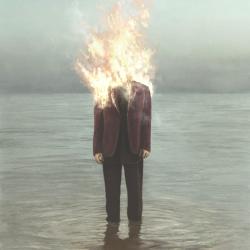
The Adelaide Writers’ Week is done and dusted. But not without a degree of controversy. The events curator, Louise Adler, found herself having to fend off calls to cancel two speakers and to herself resign. All in the name of free speech.
The two speakers whose views were considered ‘unhearable’ were author Susan Abulhawa and poet Mohammed El-Kurd – both Palestinian writers who hold strong views about the Israeli-Palestinian conflict and in Abulhawa’s case about the Russian-Ukrainian war too. Mohammed El-Kurd has criticised Israel using language that some consider to be antisemitic. But it was Abulhawa’s views, expressed on social media, that Ukrainian President Volodomyr Zelensky is a ‘ depraved Zionist with a house on stolen Palestinian land’, a ‘clown who is trying to ignite World War III’ and ‘mad and far more dangerous than (Russian President Vladimir) Putin’ that attracted the most vociferous criticism when her attendance at the writer’s week was announced. Her views run contrary to the national sentiment and to the position of the Australian government, which wholly supports Ukraine in its battle to repel the illegal Russian invasion of its country.
Adler refused to uninvite either writer, judging that to do so would be an act of censorship. Mohammed El-Kurd appeared via video link from New York and Susan Abulhawa made the journey to Adelaide in person. But as a result of Adler’s decision to have the two appear, two Ukrainian writers pulled out of the festival and some sponsors withdrew support. The critics were loud in claiming that allowing the Palestinians writer to appear at the festival was less about freedom of speech and more about permitting hate speech.
Abulhawa vociferously argues against Israeli occupation of Palestinian lands. Speaking at the festival, she said that she thought ‘the onus is put on the victims to police our tone … it really speaks to how little room there is for public discourse in Australia.’
There wasn’t much room for public discourse at another session at the festival – one chaired by this writer – when London-based financier Bill Browder was questioned about his claims about who was responsible for the death of his friend and colleague Sergei Magnitsky, a Ukrainian-born, Russian lawyer and tax advisor who worked for Browder and uncovered widespread corruption by Russian tax and law enforcement officials. Magnitsky’s death and the efforts Browder has gone to since to uncover the truth behind it and the tax fraud he and his company were accused of was the impetus for The Autonomous Sanctions Amendment (Magnitsky-style and Other Thematic Sanctions) Act in Australia. There was also disquiet when Browder was questioned about how he knew corruptly obtained money had flowed directly to the Russian President. Both questions were designed to elicit evidence. Browder responded with details of how he and his investigators had followed money trails. However, it was the fact that the questions were asked that some members of the audience didn’t seem to like.
Freedom of speech is a significant and meaningful concept in democratic societies. Even though the Australian Constitution doesn’t explicitly protect it, and even though there are important limitations on hate speech and other categories of speech, the right to speak freely only has meaning if it applies equally to everyone. Politics, culture, ideas and art are what makes writers’ festivals worth attending. The alternative is freedom of speech, only if you agree with me.

Monica Attard, CMT Co-Director

